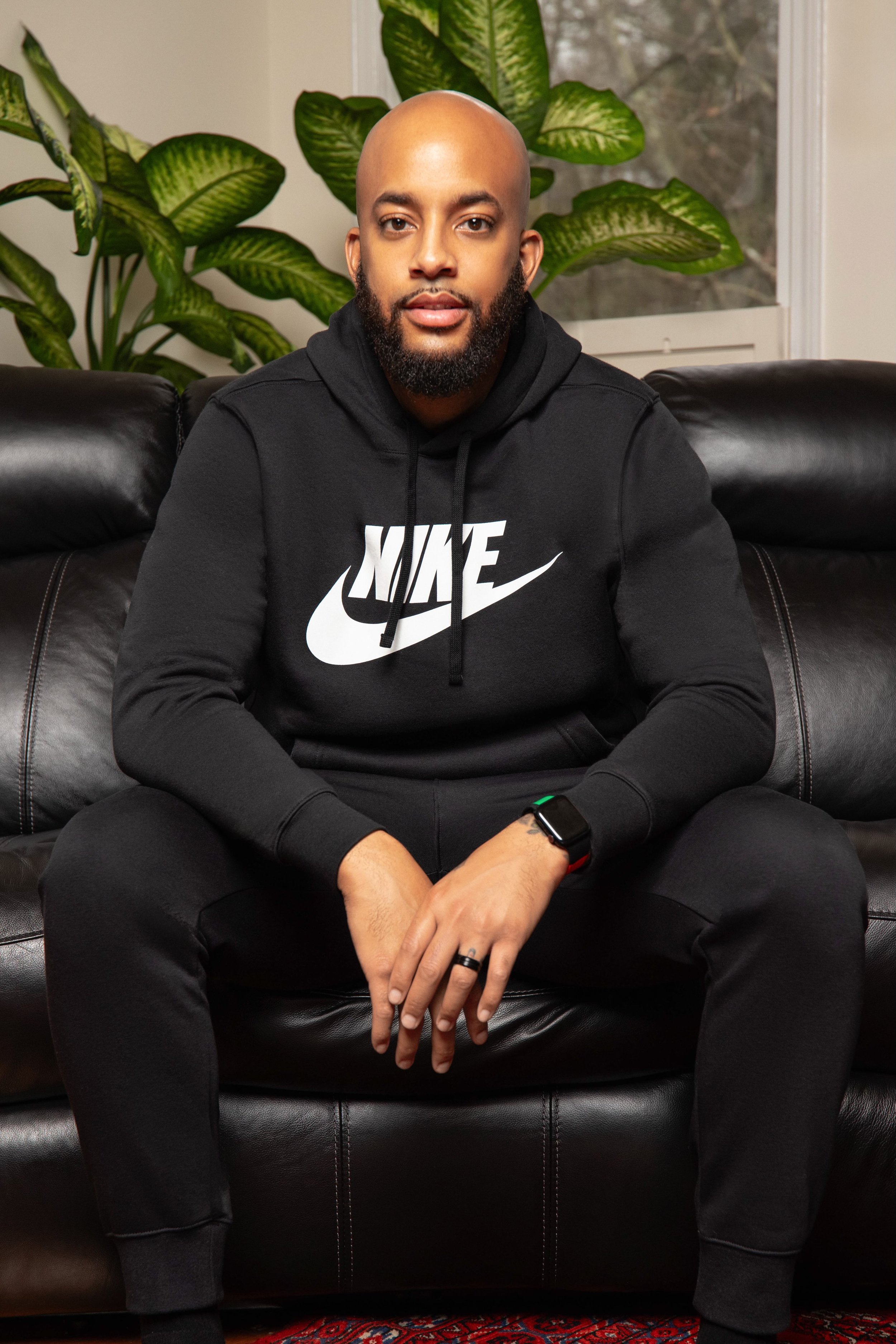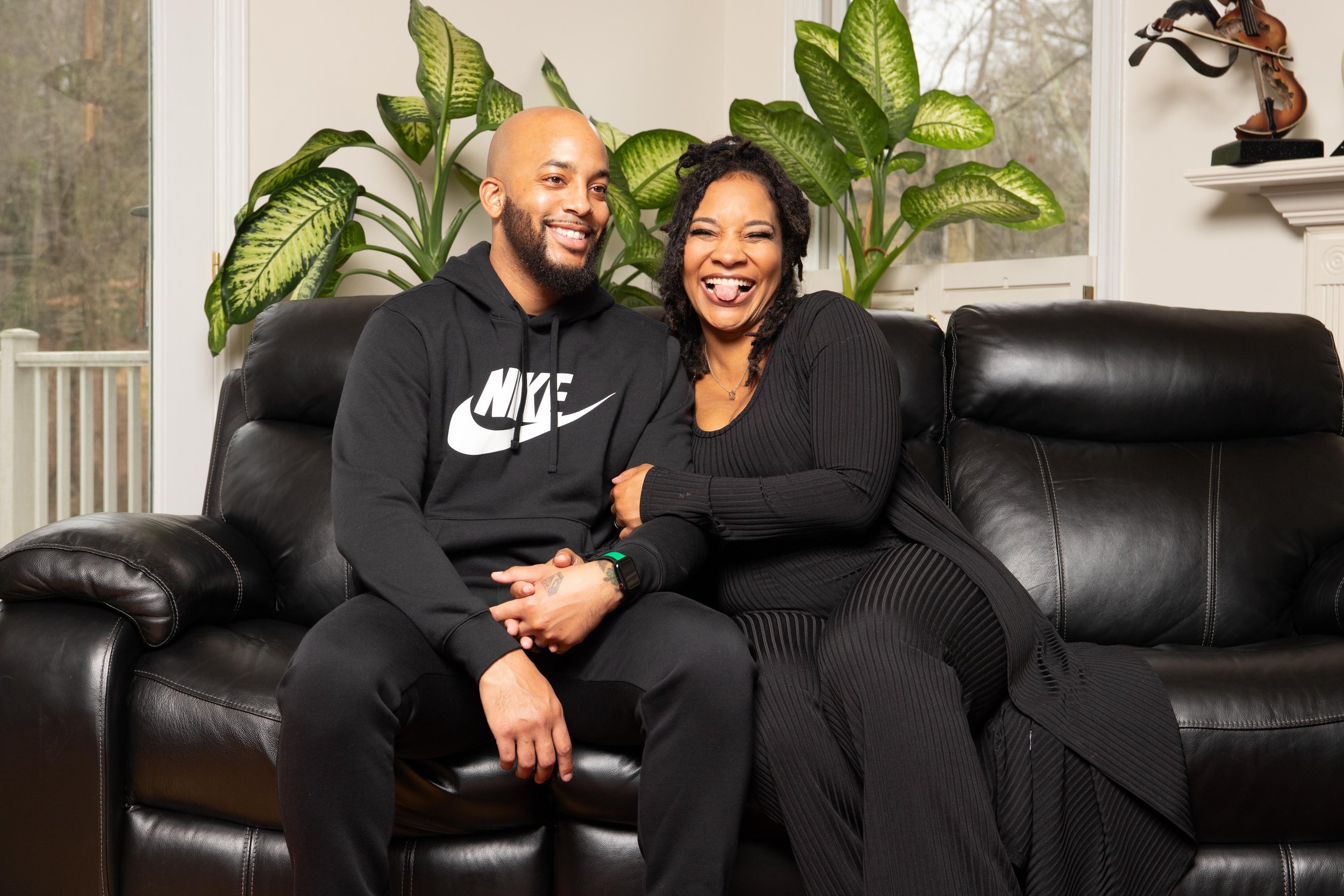The Relentless Rise of Thomas “Trey” Dortch III: Legacy, Loss, and the Will to Empower a Generation
He almost didn’t make it.
Not through high school. Not through the depression that clouded his teenage years. Not through the addiction that met him before his cap and gown. But Thomas W. Dortch III—father of eight, advocate for the voiceless, architect of community wealth and wellness—did make it. And now, he’s hell-bent on making sure others do, too.
To meet Thomas today is to meet a man calm in his convictions. He speaks with the kind of clarity that can only come from walking through hell and surviving the heat. He’s the kind of person who calls you “brother” or “sister” not for style, but because he actually means it. It’s not a performance. It’s a life repurposed.
Thomas is the President of T.W.D., Inc. and the Development Director of The Thomas W. Dortch, Jr. Foundation—named after his father, the civil rights legend whose shoulders Thomas now stands on. But Thomas isn’t standing still. He’s moving. Building. Restoring. Reimagining legacy—not by duplicating it, but by deepening it.
He doesn’t shy away from the dark parts of his story—he embraces them. “I survived myself,” he’s said before. That survival is what makes his mission so powerful. The suits and titles matter, yes. But what truly defines him is his refusal to let trauma write his ending.
In 2024, under his leadership, The Thomas W. Dortch, Jr. Foundation launched a financial literacy and entrepreneurship initiative in Atlanta Public Schools and Fulton County Schools. It’s a grassroots revolution powered by collaboration—with Operation H.O.P.E., 100 Black Men of Atlanta and South Metro, and the National Coalition of 100 Black Women all joining forces. These aren’t just programs—they’re pipelines. They’re about giving young Black students the tools to start their own businesses, to shift the trajectory of their families, to make freedom feel tangible.
And Thomas knows something about shifting trajectories.
His story is not linear. It moves like life does—in peaks and valleys. After earning his Bachelor of Science in Business Administration from Florida A&M University, Thomas started his career as an assistant event coordinator with the National Black College Alumni Hall of Fame Foundation. For nearly a decade, he worked to uplift historically Black colleges, raising funds, launching initiatives, and helping students find a future that he had once doubted for himself.
At the same time, he was working in transportation—as a human resources and PR manager at Atlanta Transportation Systems, Inc., where he managed services for the developmentally disabled and senior citizens of Fulton County. When his father passed, Thomas stepped in and became the company’s owner. He didn’t just inherit a business—he inherited a responsibility.
But entrepreneurship, for Thomas, has never been about ego. It’s about people. Especially the ones who’ve been counted out.
With The Prime Theory Company, Thomas has taken wellness into his own hands—literally. Certified as a personal trainer and nutrition specialist, he’s helped countless clients take back their health. But for Thomas, health isn’t just a number on a scale or a before-and-after photo. It’s freedom. And through Prime Theory’s five pillars—mental, physical, social-emotional, financial, and environmental health—he’s showing communities how to reclaim it.
The company’s work is deeply personal. Thomas has always been transparent about his own struggles with mental health and substance abuse. He knows what it’s like to look in the mirror and not recognize yourself. He knows what it feels like to numb the pain just to get through the day. And now, he uses that pain as a bridge—to others, to healing, to wholeness.
One of the most visible results of that vision is the Cascade Heights Indie Market, which he helped launch through The Prime Theory Company. Every month, more than 100 local business owners come together in the heart of Southwest Atlanta to showcase their goods, their talents, their dreams. It’s more than a market—it’s a movement. It’s the kind of space Thomas wished existed when he was starting out. Now, he’s built it for someone else.
In 2022, he opened one of the first health and wellness centers in Southwest Atlanta. It was a declaration: this community deserves access. Deserves resources. Deserves to feel seen.
And when it comes to visibility, Thomas isn’t just focused on health. With his wife, Jeniece Stewart, he co-founded JLQ Marketing—a branding firm built to help small and underserved businesses stand out in a noisy digital world. Together, they offer strategy and support to clients that might otherwise be overlooked. Their work is sharp, smart, and most importantly—heart-centered. They don’t just chase trends. They build trust.
There’s something grounding about the way Thomas and Jeniece operate. There’s no pretense. Just purpose. They’re raising a family—eight children—and a generation of thinkers, doers, and dreamers.
For all his public work, Thomas is still a deeply community-rooted man. A lifetime member of the NAACP. A board member of the Andrew & Walter Young YMCA. A trustee of the Fulton-Dekalb Hospital Authority. A member of the 100 Black Men of Atlanta and Special Needs Siblings, Inc. Chairman of the Cascade Business Association. A member of the Omega Xi Chapter of Alpha Kappa Psi business fraternity.
But ask him what matters most, and he’ll tell you plainly: being present. For his family. For his community. For those still battling the things he once did.
He is not here to wear a cape. He’s here to create systems of care. To make wellness accessible. To remind the overlooked that their future is still in front of them—and it’s still theirs to shape.
And in that way, Thomas Dortch is not just a success story—he’s a blueprint.
He reminds us that leadership isn’t perfection. It’s persistence. It’s choosing to show up even when it hurts. It’s letting your past inform you, not define you. It’s seeing your name etched beside your father’s—and daring to make it mean something more.
Thomas’s journey is far from over. And perhaps that’s the point. Because every step he takes—every company launched, every partnership formed, every student mentored—isn’t just about his rise. It’s about pulling others up with him.
He doesn’t just want to be remembered. He wants to be useful. He wants his story to be one someone else can grab onto when the nights feel too long. When the shame feels too big. When the world feels too far away.
Because if there’s one thing he knows for sure, it’s this:
You can survive yourself.
And once you do?
You can save somebody else.




